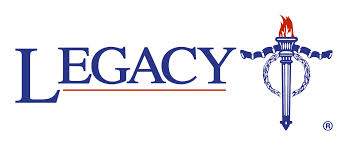记忆方法
1. 死去的人送给你的东西自然就是遗产了。
2. delegate, relegate => legacy.
2. delegate, relegate => legacy.
中文词源
legacy 遗产,遗赠财物
来自拉丁语legatus,大使,使节,词源同legate,来自PIE*leg,读,说,词源同legible.引申词义指定,任命。后词义发生变化,用于指遗嘱,遗赠。比较legate,legatee.
英语词源
- legacy (n.)
- late 14c., "body of persons sent on a mission," from Old French legatie "legate's office," from Medieval Latin legatia, from Latin legatus "ambassador, envoy," noun use of past participle of legare "appoint by a last will, send as a legate" (see legate). Sense of "property left by will" appeared in Scottish mid-15c.
权威例句
- 1. She offered to settle a legacy on Katharine.
- 她提出要把一笔遗产留给凯瑟琳。
- 2. They are the most precious cultural legacy our forefathers left.
- 它们是我们祖先留下来的最宝贵的文化遗产.
- 3. The legacy of Ancient Rome represented the overwhelming influence on Romanesque architecture.
- 古罗马的遗产体现在对罗马式建筑的巨大影响上.
- 4. The two brothers split on inheriting the legacy of their parents.
- 两兄弟为继承父母的遗产而闹翻.
- 5. He thinks the legacy is a gift from the Gods.
- 他认为这笔遗产是天赐之物.

